20+ Vendor Contract Templates
-
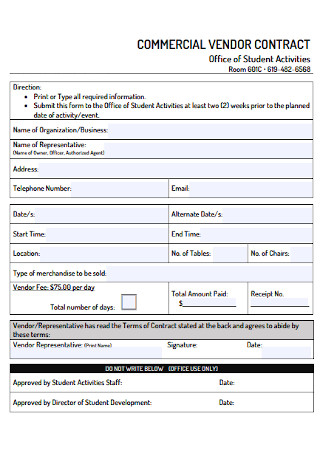
Commercial Vendor Contract Template
download now -
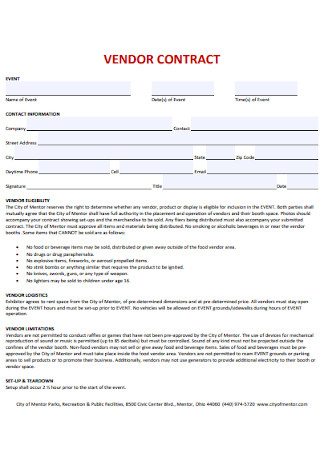
Sample Vendor Contract Template
download now -
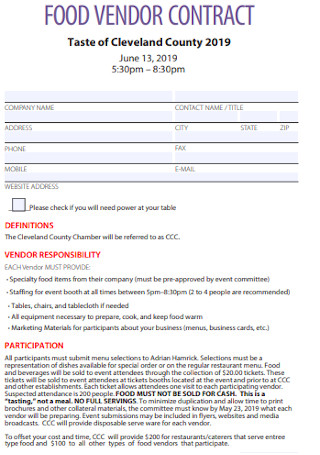
Food Vendor Contract Template
download now -
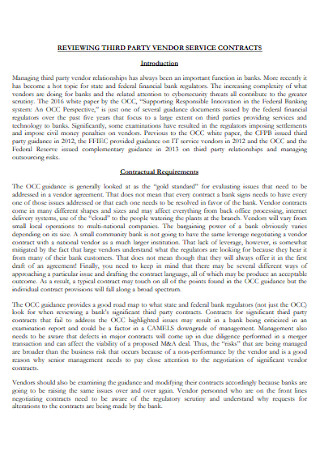
Third Party Vendor Service Contract
download now -
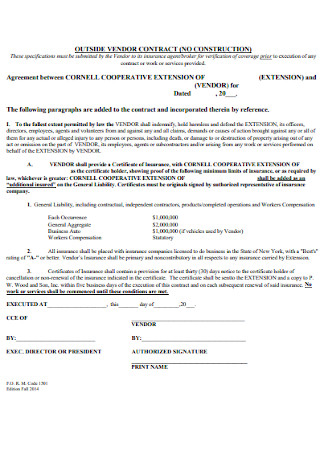
Outside Vendor Contract Template
download now -
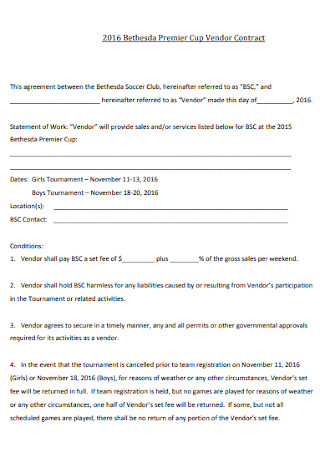
Premier Cup Vendor Contract
download now -
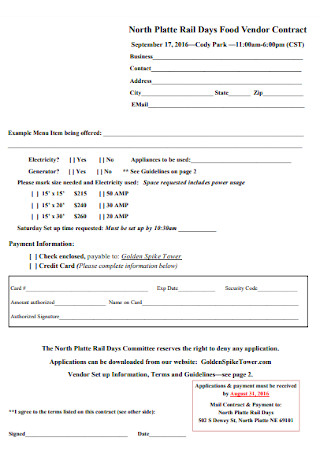
Sample Food Vendor Contract Template
download now -
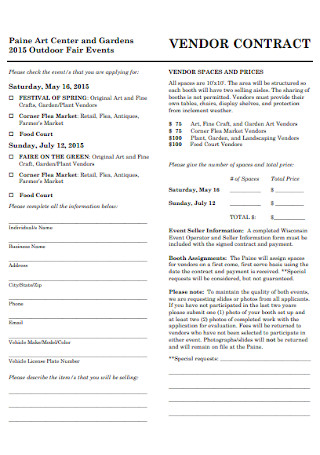
Event Vendor Contract Template
download now -
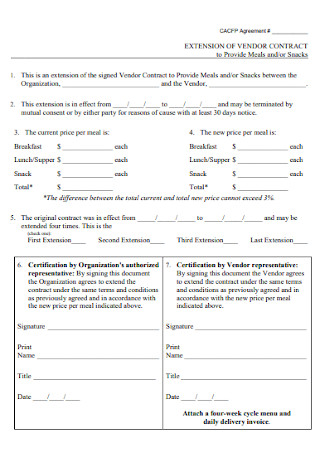
Extension of Vendor Contract Template
download now -
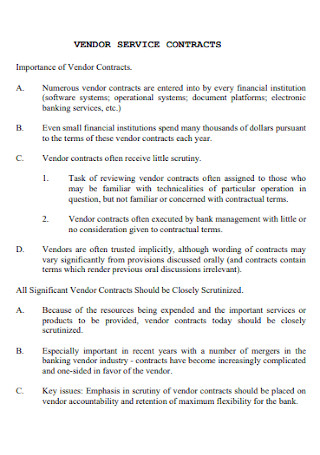
Vendor Service Contract Template
download now -
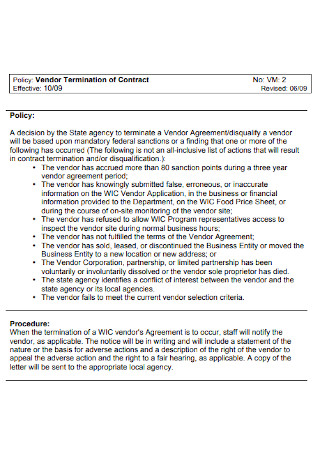
Vendor Termination of Contract
download now -
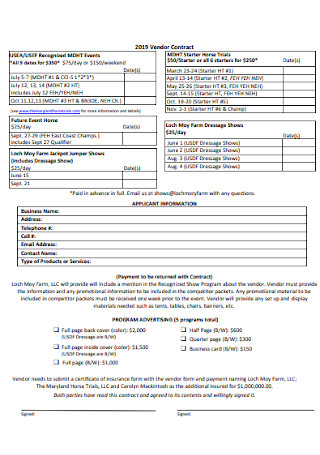
Basic Vendor Contract Template
download now -
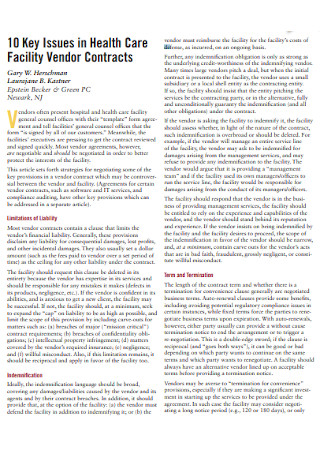
Health Care Vendor Contract
download now -
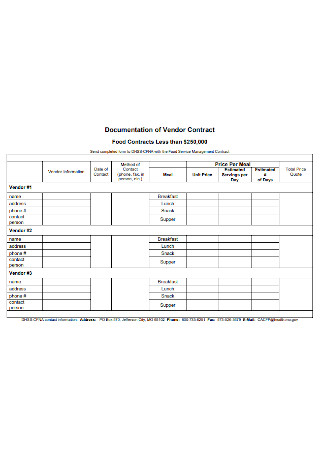
Documentation of Vendor Contract
download now -
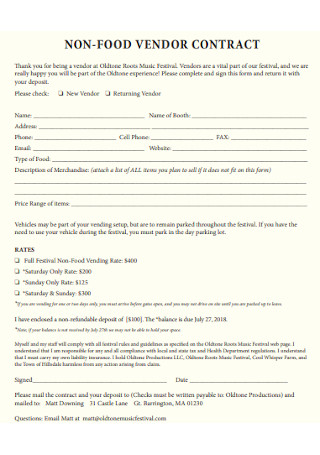
Non-Food Vendor Contract Template
download now -
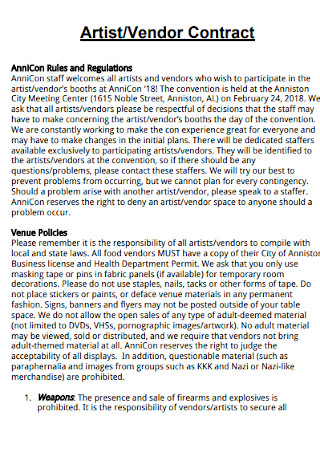
Artist Vendor Contract Template
download now -
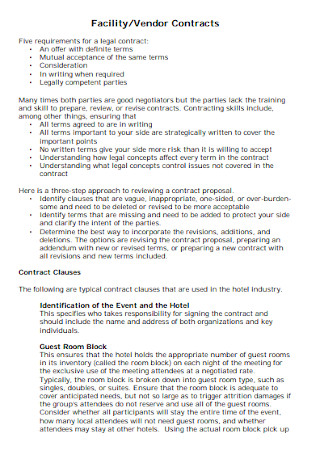
Vendor Facility Contract Template
download now -
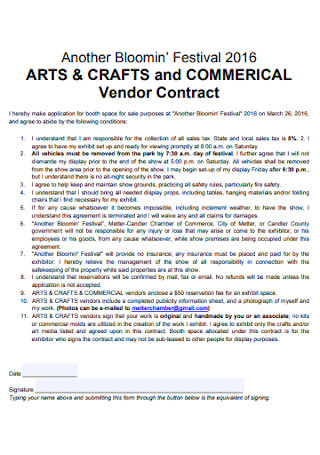
Sample Commercial Vendor Contract Example
download now -
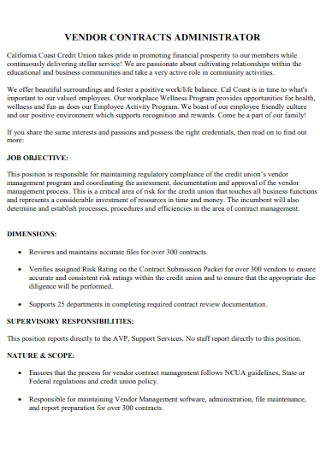
Vendor Administration Contract
download now -
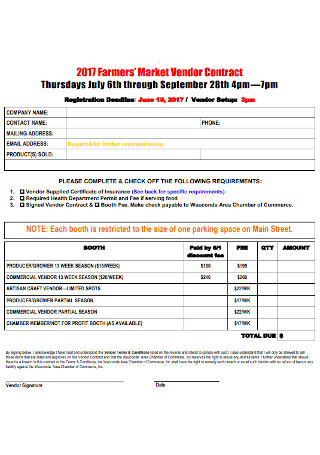
Farmers’ Market Vendor Contract
download now -
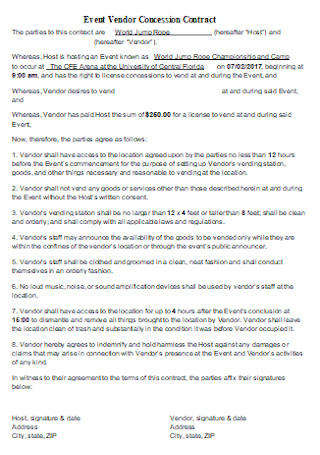
Event Vendor Concession Contract
download now
FREE Vendor Contract s to Download
20+ Vendor Contract Templates
What Is a Vendor Contract?
The Different Types of Wholesalers
How To Open and Start a Retail Store
FAQs
What are the examples of vendor agreements?
What are the different types of vendor contracts?
Is a vending contract another term for a vendor contract?
What is consignment?
What Is a Vendor Contract?
Before we define what a vendor contract is, let us first understand what a vendor is. So, what is a vendor? As part of the supply chain, a vendor’s role is to make services and goods available to individual consumers or companies. According to Investopedia, a vendor can function as a supplier and manufacturer of goods, though the term generally refers to the former. Some vendors, such as food trucks and street vendors, sell goods directly to their customers. Others operate as business-to-business or B2B entities that supply raw materials to other companies responsible for creating end products. With that said, a vendor contract is a written agreement between an individual or a company and a vendor who will provide the goods or services for the other party.
Statista reports that in the year 2015, there were approximately 2,072 manufacturing establishments in the United States.
According to an article published by Forbes in 2018, Walmart, which is the largest retailing company in the U.S., has more than 100,000 suppliers.
For B2B trading, Statista reports that in the year 2017, the revenue of both manufacturing and wholesale e-commerce was about $6.17 trillion in the U.S.
The Different Types of Wholesalers
Wholesalers are also part of the supply chain. Therefore, they are also vendors since they make products available to retailers (e.g., food vendors). In other words, vendors or suppliers can be manufacturers, wholesalers, and retailers. Wholesalers sell products in bulks at lower prices for retailers to repackage and resell at higher prices. The following are the different types of wholesalers.
How To Open and Start a Retail Store
Anyone who dreams of opening and starting his own retail business must know that it takes a lot of work. Initially, it can be tough, but with careful planning and management, one can achieve his/her business goals. The following are steps to take before one can open a retail store.
Step 1: Choose Your Business’ Structure and Name
Choosing the right organizational framework for your retail business is essential. A limited liability company is practical since it doesn’t hold its owners for its debts and liabilities. Also, in a business contract, it is vital to state provisions to protect your family in case of contingencies. After deciding on a business structure, you can now choose a name for your store. The name you choose should reflect everything about your business. It should speak about what you are selling. For example, a man named John names his store “John.” How will the customers know what he is selling? So, maybe it’s better to call the store John’s Medical Supplies if he is selling such.
Step 2: Determine Your Products and Business Channels
Before doing this step, don’t forget to file for an Employer Identification Number for tax and identification purposes. That is if you are going to have employees. Now, the next step is to decide on what merchandise you are going to sell. Most probably, you are going to choose a product that you believe in. Remember that there are instances where products need repairs or maintenance so that you can add a service section in your store as another source of profit. When we say channel, it is an instrument you use to trade with your customers. How will you get in contact with your customers? Will it be through an online shop? Will it be through a mobile app? A retailer can come in contact with his customers in several ways.
Step 3: Know the Laws of Your State
Know all the vendor contract requirements. Requirements may include business permits and licenses you can obtain from government offices in your state. Before starting your business, research first about the laws governing the business structure you chose. You can ask for assistance from an attorney or an accountant to organize these matters.
Step 4: Create a Business Plan
You must put your plan in writing and think of all the areas and angles concerning your business. Extensive research is crucial, as well. Doing this step may take time, but the success of your business depends on a detailed business plan. A good business plan must tackle the following areas: customer experience, competitive analysis, employee proposal, marketing plan, management plan, and financial projection.
Step 5: Look for a Good Location
Choosing the right location is very crucial for your business. It’s a life and death decision you have to take for your business. However, you must also consider your budget when choosing the right location. You don’t want to pay for a rental that will possibly consume most of your profit. So, before you sign a lease agreement, be practical, and consider other options.
Step 6: Establish Relationships with Other Vendors
Your business depends significantly on the product you sell. It should be a product that is for the right price. To do that, you must establish relationships with other vendors with a standard vendor agreement at hand. Find places where you can purchase the items you want to sell in bulks at a low price. Look for vendors who are willing to be your partners in delivering good quality products to end customers. When partnering with other vendors, you must consider other factors such as co-op funds, credit, defective items, marketing, payment terms, and returns.
FAQs
What are the examples of vendor agreements?
There are many examples of vendor contracts, such as a buyer vendor contract and a wedding vendor contract. A buyer vendor agreement concerns the product that a retailer sells to his buyer, while a wedding vendor agreement concerns the services that a vendor offers to a client. The outline of a contract will mainly depend on what a vendor provides, whether it be goods or services.
What are the different types of vendor contracts?
The following are the different types of vendor contracts: (1) Lump sum agreement. It is a contract that demands a fixed price for a particular product. (2) Cost disbursal arrangement. It is an agreement that gives favor to a seller since it combines profit with incentive. (3) Time contract. This contract is standard when work hours measure the payment for the services offered. (4) Indefinite delivery agreement. This type of deal is used when the product schedule delivery and quantity are indefinite. (5) Distribution contract. A distribution agreement is a deal between a manufacturer and a distributor. Its goal is to distribute products to retailers or customers successfully.
Is a vending contract another term for a vendor contract?
No. A vending contract, or also known as a vending machine contract, is an agreement between a vending machine company and a client who wants to have a vending machine on a specific location. This written document can be useful when one wants to install machines in schools, malls, public centers, gyms, convenient stores, and more. Typically, the contract will contain the following information: the names and addresses of the parties, the location for the vending machine, clauses concerning machine requirements, term of the agreement, payment conditions, and signature of the parties.
What is consignment?
Consignment is a deal where a seller permits a licensed third party seller to trade his/her goods. For example, a retail shop sells paintings on behalf of a painter. Typically, the owner or consignor will get a percentage from the product sale, depending on the details of a consignment agreement. Note that consignment doesn’t apply to retailers, such as supermarkets since they usually purchase their items from wholesalers.
Based on our previous illustration, we can liken the secret message to a vendor contract, and the person last in line to an end customer. If there are inaccuracies in the process of relaying the information, you won’t expect the last person to get the message. The same idea applies when vendors have a deal without a written vendor agreement. You won’t expect the end customers to get the goods they need when issues arise between the vendors.
